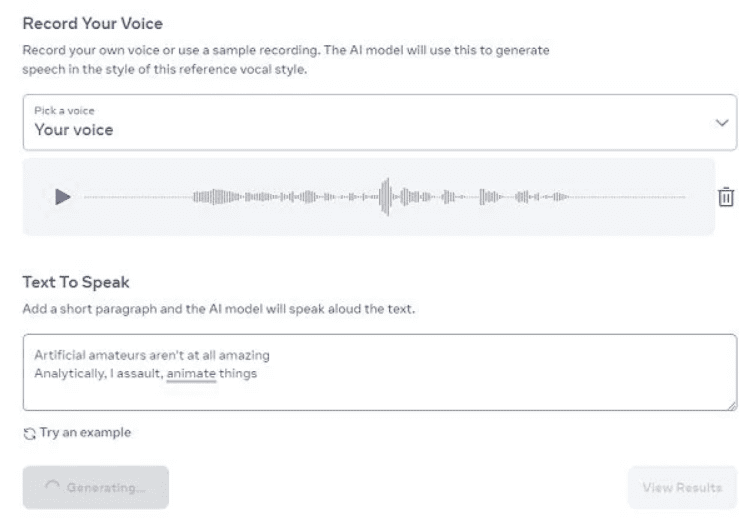TL;DR:
- Meta launches Audiobox, a generative AI project for voice and audio creation.
- Audiobox combines voice inputs and text prompts to create custom audio content.
- Features include voice descriptions, sound effects, audio editing, and text-to-speech capabilities.
- Users can choose system voices or even replicate their own voices.
- Meta’s generative AI tools expand, raising concerns about accessibility and security.
Main AI News:
Following the recent preview of its groundbreaking Audiobox generative AI venture, which possesses the remarkable capability to replicate a user’s voice using only a few seconds of audio input, Meta has officially launched a publicly available demo of this revolutionary process. The Audiobox demo empowers individuals to craft personalized audio samples, leveraging their own voices and text prompts.
In Meta’s own words: “Audiobox stands as Meta’s pioneering research model in the realm of audio generation. It excels at creating diverse voices and immersive sound effects, harnessing a fusion of vocal inputs and natural language text prompts. This transformative technology facilitates the effortless production of tailor-made audio content, serving a multitude of practical applications.”
The Audiobox demo delivers a comprehensive array of features, encompassing voice descriptions, sound effect synthesis, audio editing capabilities, and more. Its primary utility lies in the creation of bespoke audio content driven by text prompts.
Meta has thoughtfully included several fundamental Audiobox test components, notably a text-to-speech functionality that empowers users to generate personalized audio content from any textual input. While the demo offers just two system voices, namely “Alice” and “Emily,” it effectively demonstrates the potential to translate custom text into alternative audio expressions. Moreover, users have the flexibility to incorporate bespoke sounds into their audio samples, all guided by textual cues.
However, what truly sets Audiobox apart is its uncanny ability to replicate a user’s own voice, a feature that undoubtedly pushes the boundaries of innovation. This remarkable development adds to Meta’s ever-expanding suite of generative AI tools, poised to find diverse applications within its suite of applications in the upcoming year. Nevertheless, it is worth noting that, despite Meta’s ongoing efforts to bolster security measures, the wider accessibility of such tools raises concerns, especially considering the various terms of service conditions associated with them.
Conclusion:
Meta’s Audiobox represents a groundbreaking leap in AI-driven audio content creation. Its versatility and ease of use have the potential to disrupt the audio production market. However, concerns regarding accessibility and security must be carefully addressed as these tools become more widely available.

